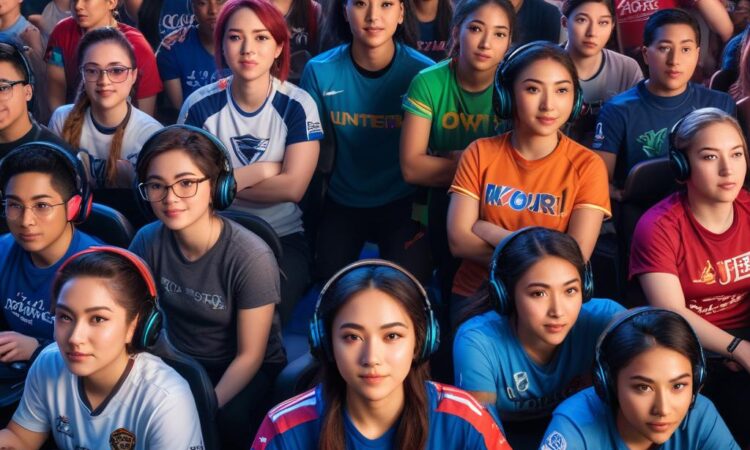Esports Accessibility and Inclusivity: A Movement for Everyone
The world of esports has experienced explosive growth in recent years, capturing the attention of millions worldwide. While the competitive spirit and thrilling matches draw in diverse audiences, a critical conversation surrounding accessibility and inclusivity has gained momentum within the esports community. Organizations and leagues are actively working to make esports more accessible and inclusive, with initiatives aimed at promoting diversity and creating opportunities for underrepresented groups.
Breaking Down Barriers: Accessibility Initiatives
One of the most significant obstacles to entry for many aspiring esports players is the cost associated with participation. High-end gaming PCs, peripherals, and internet connectivity can be prohibitively expensive for individuals with limited financial resources. Recognizing this barrier, several organizations are taking action to level the playing field.
For example, the ESL, one of the largest esports tournament organizers in the world, has launched programs like \”ESL Play\” and \”ESL Pro League\” that offer free-to-play competitions and opportunities for aspiring professionals to showcase their skills without financial burdens. These initiatives provide a platform for individuals from all socioeconomic backgrounds to compete and potentially earn a living through esports.
Another crucial aspect of accessibility is the availability of equipment and resources for players with disabilities. Organizations like Ability Sport are dedicated to promoting inclusive esports by providing specialized gaming setups and adaptive controllers for gamers with physical limitations. These efforts ensure that esports is truly accessible for everyone, regardless of their physical abilities.
Championing Diversity: Fostering Inclusivity
Beyond financial and physical barriers, esports has traditionally faced challenges with diversity and inclusivity. The lack of representation for women, people of color, and individuals from marginalized communities has been a persistent concern. However, positive change is underway. Organizations and leagues are taking concrete steps to dismantle these barriers and foster a more welcoming and inclusive esports ecosystem.
One notable example is Women in Esports, a non-profit organization dedicated to empowering women in the esports industry. They offer mentorship programs, networking events, and educational resources to help women navigate the competitive esports landscape. By providing support and creating opportunities, Women in Esports is paving the way for a more equitable and representative future for women in esports.
The Dignitas esports organization has also made significant strides in promoting diversity. They have actively recruited players from diverse backgrounds and established a strong commitment to creating an inclusive environment for all. Dignitas has demonstrated that prioritizing diversity is not just a social responsibility, but a strategic advantage that leads to stronger teams and a more engaging fanbase.
From Policy to Practice: League-Level Initiatives
Beyond individual organizations, major esports leagues are also stepping up their efforts to promote accessibility and inclusivity. The Riot Games-run League of Legends Championship Series (LCS) has implemented a strict Code of Conduct for players, teams, and staff that explicitly prohibits discrimination and harassment based on race, religion, gender, sexual orientation, or disability. This commitment to inclusivity sends a clear message that the LCS is dedicated to creating a safe and respectful environment for everyone involved.
The Overwatch League has also adopted a similar approach, emphasizing the importance of diversity and inclusivity within its competitive ecosystem. They have established initiatives like the \”Overwatch League Diversity and Inclusion Summit\” to address issues of representation and promote greater equality within the league.
A Long Road Ahead: Continued Efforts
While significant progress has been made in recent years, the journey toward a truly accessible and inclusive esports ecosystem is far from over. There is still much work to be done to address systemic biases, dismantle historical inequalities, and ensure that everyone has an equal opportunity to participate and excel in esports. However, the growing awareness and commitment to inclusivity within the esports community offer a glimmer of hope for a more equitable and diverse future.
The Future of Esports: Accessible, Inclusive, and for Everyone
The pursuit of accessibility and inclusivity is not just a moral obligation, but a strategic necessity for the continued growth and longevity of the esports industry. By creating a welcoming and diverse environment, esports can tap into a wider pool of talent, attract a more expansive audience, and foster a stronger and more sustainable esports ecosystem. As the esports landscape continues to evolve, the commitment to accessibility and inclusivity will be a defining factor in determining the future success of the industry.

